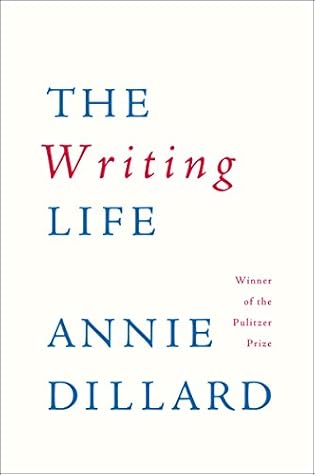More on this book
Community
Kindle Notes & Highlights
So it is that a writer writes many books. In each book, he intended several urgent and vivid points, many of which he sacrificed as the book’s form hardened.
The writer returns to these materials, these passionate subjects, as to unfinished business, for they are his life’s work.
Is it pertinent, is it courteous, for us to learn what it cost the writer personally?
Putting a book together is interesting and exhilarating. It is sufficiently difficult and complex that it engages all your intelligence. It is life at its most free.
It is life at its most free, if you are fortunate enough to be able to try it, because you select your materials, invent your task, and pace yourself.
The obverse of this freedom, of course, is that your work is so meaningless, so fully for yourself alone, and so worthless to the world, that no one except you cares whether you do it well, or ever.
Why not shoot yourself, actually, rather than finish one more excellent manuscript on which to gag the world?
Bee after bee will lead toward the honey tree, until you see the final bee enter the tree. Thoreau describes this process in his journals. So a book leads its writer.
It takes years to write a book—between two and ten years. Less is so rare as to be statistically insignificant.
Graham Greene noticed that since a novel “takes perhaps years to write, the author is not the same man at the end of the book as he was at the beginning…as though [the novel] were something he had begun in childhood and was finishing now in old age.”
In my view, the more literary the book—the more purely verbal, crafted sentence by sentence, the more imaginative, reasoned, and deep—the more likely people are to read it. The people who read are the people who like literature, after all, whatever that might be.
I cannot imagine a sorrier pursuit than struggling for years to write a book that attempts to appeal to people who do not read in the first place.
Appealing workplaces are to be avoided. One wants a room with no view, so imagination can meet memory in the dark.
The life of the spirit requires less and less; time is ample and its passage sweet.
every writer needed a technique, experience, and a philosophical position.
Its relationship to the vision that impelled it is the relationship between any energy and any work, anything unchanging to anything temporal.
What would you begin writing if you knew you would die soon?
And like that expert, he, too, plays the edges. That is where the exhilaration
It is no less difficult to write sentences in a recipe than sentences in Moby-Dick. So you might as well write Moby-Dick.
Writing every book, the writer must solve two problems: Can it be done? and, Can I do it?
Why are we reading, if not in hope of beauty laid bare, life heightened and its deepest mystery probed?
The sensation of writing a book is the sensation of spinning, blinded by love and daring.
At its best, the sensation of writing is that of any unmerited grace. It is handed to you, but only if you look for it.
one line of a sonnet falls from the ceiling, and you tap in the others around it with a jeweler’s hammer.
“He goes because he must, as Galahad went towards the Grail: knowing that for those who can live it, this alone is life.”
Push it. Examine all things intensely and relentlessly. Probe and search each object in a piece of art. Do not leave it, do not course over it, as if it were understood, but instead follow it down until you see it in the mystery of its own specificity and strength.
“the draftsman must aggress; only by persistent assault will the live image capitulate and give up its secret to an unrelenting line.”
The artist is willing to give all his or her strength and life to probing with blunt instruments those same secrets no one can describe in any way but with those instruments’ faint tracks.
This is really important. Probably the most important point of all. Probe and search relentlessly until it holds its secrets.
spend it all, shoot it, play it, lose it, all, right away, every time. Do not hoard what seems good for a later place in the book, or for another book; give it, give it all, give it now. The impulse to save something good for a better place later is the signal to spend it now. Something more will arise for later, something better.
the impulse to keep to yourself what you have learned is not only shameful, it is destructive.
Anything you do not give freely and abundantly becomes lost to you. You open y...
This highlight has been truncated due to consecutive passage length restrictions.
I knew I had devoted a good part of my life to it, memorizing poetry and focusing my attention on complexity of rhythm in particular, on force, movement, repetition, and surprise, in both poetry and prose.
I decided to become an expert on mountains. It wasn’t much to be, it wasn’t everything, but it was something. I was going to know everything about mountains from every point of view.


